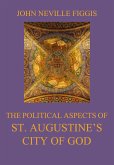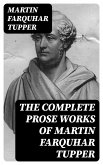In "The Temptation of St. Anthony," Gustave Flaubert employs a unique literary style that intertwines rich symbolism and a vivid, almost impressionistic prose to explore the psychological and spiritual struggles of the titular saint. Written in the latter half of the 19th century, this text reflects Flaubert's fascination with the theme of temptation, drawing on the historical figure of St. Anthony, who is subjected to a series of delirious visions and confrontations with his desires. The interplay of faith and doubt, purity and temptation, is portrayed through a series of extraordinary and often grotesque encounters, encapsulating Flaubert's innovative approach to narrative structure and his profound engagement with existential themes. Gustave Flaubert, a pivotal figure in 19th-century literature and herald of literary realism, drew inspiration from his own struggles with societal norms and conventional expectations. Notably, his meticulous attention to language and form in this work reflects his broader artistic goals, as Flaubert sought to transcend the narrative limitations of his time. This book is essential for readers interested in the intersection of faith and the human experience. Flaubert's nuanced exploration of the psyche invites readers to reflect on their beliefs and resistances, making it a compelling read for both scholars and casual readers eager for deep philosophical engagement.
Dieser Download kann aus rechtlichen Gründen nur mit Rechnungsadresse in A, B, BG, CY, CZ, D, DK, EW, E, FIN, F, GR, H, IRL, I, LT, L, LR, M, NL, PL, P, R, S, SLO, SK ausgeliefert werden.









